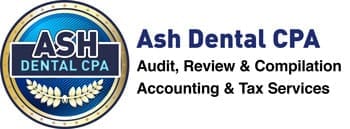Types of Dental Expenses That Can and Cannot Be Deducted

When it comes to taxes, there are a lot of things that can be deducted to help you save money in various ways. However, what about dental expenses? Can you deduct from those? Well, the simple answer to this question is: it depends.
There are a few different scenarios in which dental expenses could be considered tax deductible. For example, if you are self-employed and your dental expenses exceed 2% of your adjusted gross income, you may be able to deduct them. Additionally, if you itemize your deductions, you may be able to deduct dental expenses that exceed 7.5% of your adjusted gross income.
However, it’s important to note that in order for any dental expenses to be considered tax-deductible, they must be considered “necessary and ordinary.” This means that things like cosmetic dental procedures are not typically considered tax deductible.
That said, to help you save more money from your dental healthcare, let’s get a little more detailed on what exactly you may or may not deduct:
Dental Expenses That Can Be Deducted
1. Dental Exams and Cleanings
As long as you have a receipt from the dentist, you can deduct the cost of your exams and cleanings.
2. Dental X-Rays
Just like with exams and cleanings, as long as you have a receipt from the dentist, you can deduct the cost of your x-rays.
3. Dental Treatment for a Medical Condition
If you have a medical condition that requires you to see a dentist, you can deduct the cost of your treatment.
4. Dental Implants
If you have dental implants, you can deduct the cost of the implants as well as the cost of the surgery to put them in.
Dental Expenses That Cannot Be Deducted
1. Teeth whitening
Unfortunately, the IRS does not consider teeth whitening to be a medical expense, so the cost cannot be deducted.
2. Braces
While braces can be considered a medical expense, the IRS has specific requirements that must be met in order for the expense to be deductible. The braces must be considered medically necessary in order to treat a deformity, malocclusion, or other dental issues. If it is purely for aesthetic reasons, it may not be considered as such.
3. Cosmetic Dental Procedures
Just like with teeth whitening, the IRS does not consider cosmetic dental procedures to be medically necessary, so the cost cannot be deducted.
Conclusion
As you can see, some expenses are clear and cut on whether they can be deducted, while some others may need more context to know whether you can deduct from there. This type of complication makes it that you may be missing out on deductions you could have enjoyed if only you knew. As such, if you have any questions about whether or not your dental expenses are deductible, be sure to speak with your dentist or tax advisor. With their help, you can know for sure what you can use to deduct your taxes. From there, you can save plenty of money, and the next time you go for a dental procedure, you know whether or not you can use the expense to save extra money!
Ash Dental CPA offers accounting services for dental and healthcare professionals to help dental firms manage their money the right way. If you are looking for an accountant for dentists, work with us today!
